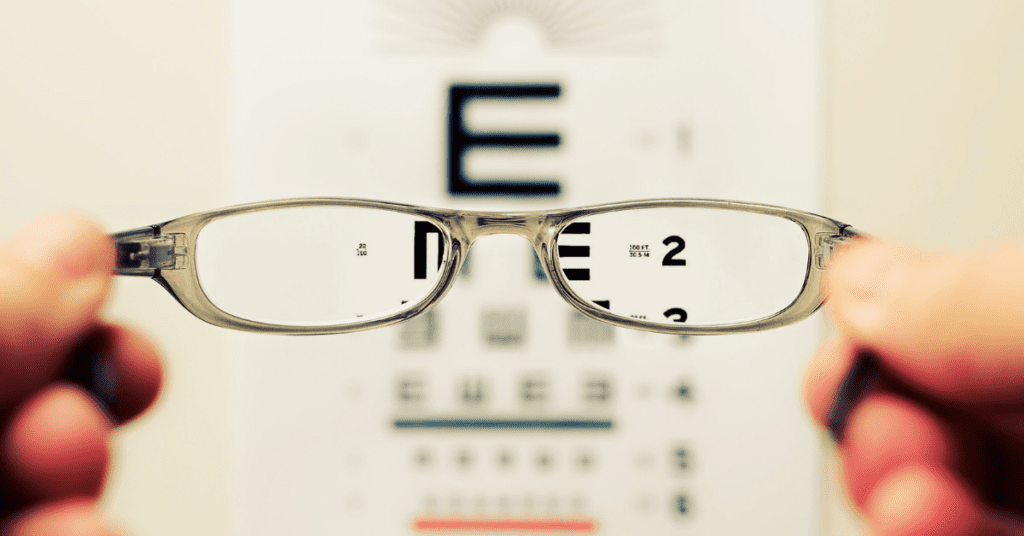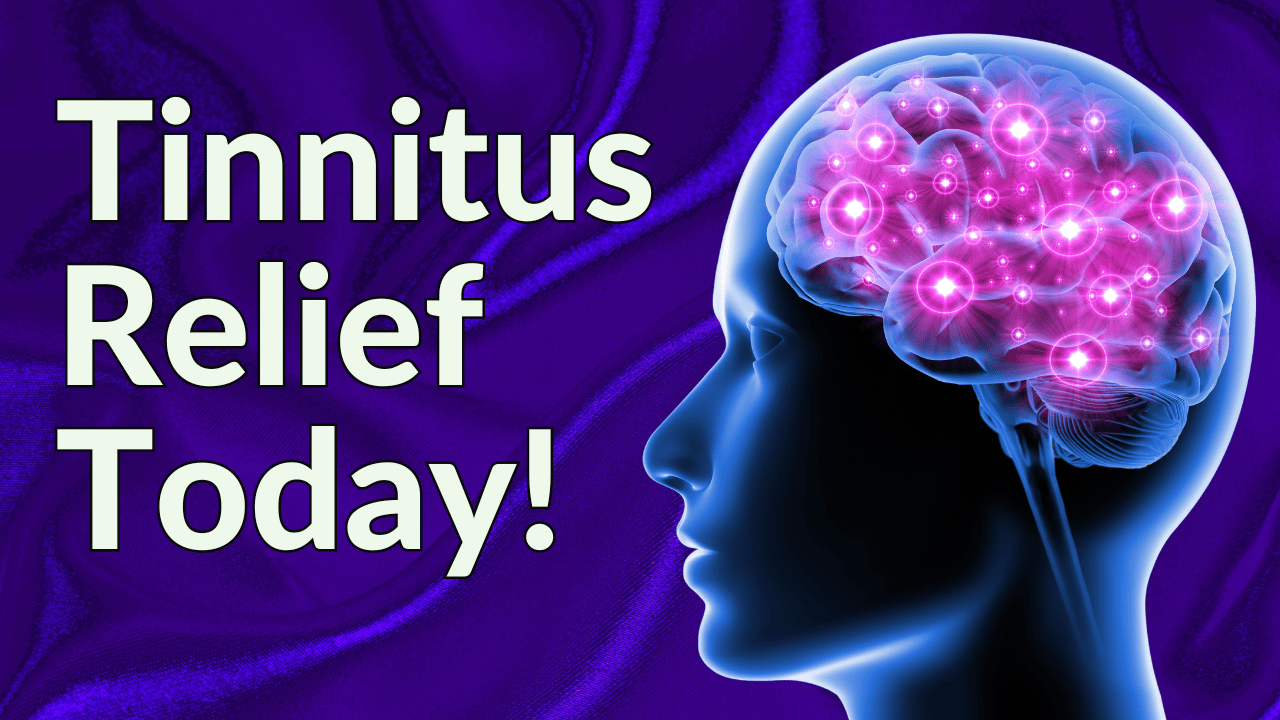Blurred vision and tinnitus can occur at the same time, but they aren’t always related. Although these are two separate symptoms that are often experienced separately, there are quite a few health conditions that can contribute to both. Some of these conditions are common – like insomnia – while others, like thyroid disorders, may require specialist care.
Medical Conditions Related to Both Tinnitus and Blurred Vision
Most often described as ringing in the ears, tinnitus is the extremely common experience of hearing sounds when there is no external source. It’s possible to experience tinnitus in one ear or both. Chronic tinnitus is frequently related to hearing loss, exposure to loud noise, injury, or a medical condition. For most people, it’s a mild annoyance that passes quickly, but for about 20% of the population, it can become a bothersome, ever present noise that impacts quality of life.
"Treble Health helped me reduce my tinnitus by about 80%, and now I can live my life again!"


"Treble Health helped me reduce my tinnitus by about 80%, and now I can live my life again!"
– Steve D.
Book a free consultation to learn which Treble Health solution is right for you. Join Steve and thousands more who have found lasting tinnitus relief.
Blurred vision, or sight that is not sharp and clear, is the most common sight-related symptom that people report to their doctors. You can experience blurred vision in one eye or both, and it may come and go. In many cases, the cause is something easily managed, like minor irritation or vision issues that can be corrected with eyeglasses. In other cases, however, these visual disturbances may be related to a broader medical condition.
On its own, tinnitus won’t cause blurry vision – nor will blurry vision directly cause tinnitus. Still, tinnitus and eyesight can be related.
Glaucoma
Glaucoma is a chronic progressive eye condition that damages the optic nerve. The most common form, open-angle glaucoma, develops so slowly that many people don’t even realize they have it until their vision loss is very noticeable. Glaucoma symptoms include headaches, eye pain, eye redness, blurred vision, and even permanent sight loss. Medication, eye drops, laser treatment, or surgery can help slow or stop the progression of glaucoma.
According to a recent clinical study, people with glaucoma are up to 85% more likely to experience tinnitus than people without glaucoma. Though the mechanism linking these conditions is not fully understood, research suggests it could be due to vascular dysfunction, since decreased blood flow to the ear may lead to hearing problems.
Hypertension



Hypertension – better known as high blood pressure – affects much more than just heart health. Blood pressure naturally rises and falls throughout the day, but if it remains consistently high, hypertension can damage blood vessels throughout your body, including the tiny vessels in your heart, brain, kidneys, and other organs. This can set off a domino effect, leading to organ damage that can be severe. Early hypertension has no obvious symptoms other than an elevated blood pressure measurement. Treatment includes medication, diet and exercise, and lifestyle modifications.
In some cases, high blood pressure can damage your eyes, leaving you with blurry vision. Long-term effects of hypertension on the tiny blood vessels in your eyes can cause:
- Retinopathy. A lack of blood flow to the retina may lead to vision problems or a complete loss of sight. People with both diabetes and high blood pressure are at an even greater risk.
- Choroidopathy. Fluid buildup under the retina – the light-sensitive layer of tissue at the back of your eyeball – results in distorted vision or scarring that impairs your sense of sight.
- Optic neuropathy. This type of nerve damage is the result of blocked blood flow that damages the optic nerve. Damage to these fragile nerves may cause temporary or permanent sight loss.
High blood pressure, heart disease, and other circulatory problems are well known for causing issues with your hearing. Studies suggest that increased or forceful blood flow to your ears may cause tinnitus. Some people with hypertension may also experience pulsatile tinnitus – a whooshing sound that is synchronized with your heartbeat.
Diabetes
Like high blood pressure, diabetes is a single condition that impacts many parts of your body, including your ears and eyes. Essentially, diabetes is an imbalance in your blood sugar. This imbalance can cause high blood pressure, nerve damage, eye problems, and tinnitus. Without management, diabetes may lead to serious complications. Most treatment plans include medicine or diet and lifestyle modifications.
Diabetic macular edema (DME) causes blurred vision and is the most common cause of vision loss among diabetic patients. Diabetic macular edema is the result of micro-vascular changes stemming from diabetes, leading to optic disc swelling and damage to blood vessels. Not only can diabetes damage your eyesight, hearing loss is twice as common in people who have diabetes as it is in people who don’t. Tinnitus and hearing loss are very closely related and in fact, as many as 90% of people with tinnitus symptoms also experience some level of hearing loss.
According to the World Health Organization (WHO), there are 15 million Americans with diabetic macular edema – and about half of them are undiagnosed or do not have access to eye care. Worldwide, more than 150 million people live with diabetes.
Meniere’s Disease
Meniere’s disease is a relatively rare disorder that results in a fluid imbalance in your inner ear. Because this inner ear fluid plays a major role in your sense of balance, people with Meniere’s disease symptoms typically experience fluctuating hearing loss, dizzy spells (vertigo), problems maintaining a sense of balance, and tinnitus. The characteristic dizzy spells may come with double vision or blurred vision.
Meniere’s disease typically affects one ear at a time and tends to be a chronic condition. The causes aren’t well-known, but research suggests it’s related to fluid drainage, autoimmune conditions, or genetics. Using a hearing aid can support your hearing ability while helping you tune out tinnitus.
Migraines
Migraines are much more intense than your typical headache. Migraines, characterized by severe throbbing pain, are often accompanied by sudden vision changes like intense sensitivity to light, blurred vision, double vision, or a visual aura. These auras often appear as blind spots, flashes of light, or unusual shapes and colors. Migraines typically last a few hours, and while some people experience them only rarely, it can be a chronic condition.
There seems to be a link between migraines and tinnitus: people who suffer from migraines are more likely to report tinnitus, and people with tinnitus are more likely to experience migraines. During a migraine attack, hypersensitive sensory processing makes tinnitus seem louder or more noticeable. A history of migraines is a risk factor for chronic tinnitus without any other causes. Migraines, tinnitus, and vision changes may be linked by changes in blood flow, although research is still ongoing.
Thyroid Disease (Hashimoto’s Disease and Graves’ Disease)
Your thyroid is a gland that controls hormones, including the hormone for metabolism. Hashimoto’s disease and Graves’ disease are two of the most common thyroid conditions, but with very different effects on your health. Hashimoto’s disease causes hypothyroidism (too little thyroid hormone) and Graves’ disease causes hyperthyroidism (too much thyroid hormone). Regardless of the type of thyroid disease, an imbalance in this hormone can lead to numerous medical issues, including thyroid eye disease (TED).
Thyroid eye disease symptoms include dry or watery eyes, red eyes, double vision, pain, difficulty focusing, and blurry vision. Both hyperthyroidism and hypothyroidism are also associated with hearing loss and, if left untreated, can even result in sensorineural and conductive hearing loss. Thyroid disease can also increase your odds of developing tinnitus.
Stroke
A stroke is a sudden and serious medical condition that impacts brain function, vision, and hearing. Strokes are caused by blockages or damage to blood vessels in the brain, which in turn can cause brain damage. Hypertension is one of the biggest factors contributing to strokes, so managing your blood pressure and making healthy lifestyle choices are a good way to avoid a stroke.
Signs of a stroke include sudden confusion, facial paralysis, headache, nausea, and trouble seeing. Patients may feel dizzy, experience hearing loss, or hear noises like a ringing in the ears. Stroke symptoms can come on with little or no warning, so understand your risks and never ignore facial paralysis. After a stroke, a doctor may perform a magnetic resonance imaging (MRI) test to determine the extent of the damage.
Other Possible Causes of Blurred Vision and Tinnitus Symptoms



Before assuming you have a serious medical condition, be sure you’ve ruled out other common causes of blurry vision with tinnitus.
If you’ve had trouble sleeping lately, you may have heavy, tired eyes and trouble seeing clearly. Insomnia can worsen tinnitus, especially if you’re struggling to rest due to the constant ringing in the ears.
Stress can increase your blood pressure too, leaving you with new vision problems and hearing changes. Mental health conditions like depression and anxiety can impact your sight, preventing you from seeing fine details as clearly as you used to. These conditions are also closely linked to tinnitus – both as a symptom and as a cause — and may be part of a vicious cycle.
Common medications may have dramatic side effects. Some over-the-counter painkillers like ibuprofen, acetaminophen, and even aspirin can have vision and hearing side effects, especially if pain killers are taken in high doses or for an extended period of time. If you’ve recently changed medications and start experiencing tinnitus and vision changes, be sure to check with your doctor about any medicine interactions.
Additionally, age-related hearing loss is one of the biggest contributors to tinnitus symptoms, and for many people, vision changes are a common part of the aging process as well.
Treatment and Symptom Management
Before focusing on managing tinnitus symptoms, you should always visit your doctor for a full clinical examination to rule out any underlying conditions. Tinnitus is usually related to benign conditions – and can even exist independently – but tinnitus with blurred vision may be part of something more serious. Getting a proper diagnosis and managing the root cause is always the first step in effective tinnitus management.
Be sure to take your overall health and emotional well-being into consideration, too. Without a management plan, living with sight and hearing issues can be frustrating, stressful, or discouraging. Tinnitus management techniques like tinnitus retraining therapy (TRT) and cognitive behavioral therapy (CBT) are both effective at helping you minimize both your symptoms and your stress level.
Next Step: Book Free Consultation
- 75% of patients reduced their tinnitus within three months after following our recommendations.
- "I feel like Treble Health literally gave me my life back." - Randy S. (verified customer)
- Join thousands of people who have reduced their tinnitus after scheduling a free consultation.


















